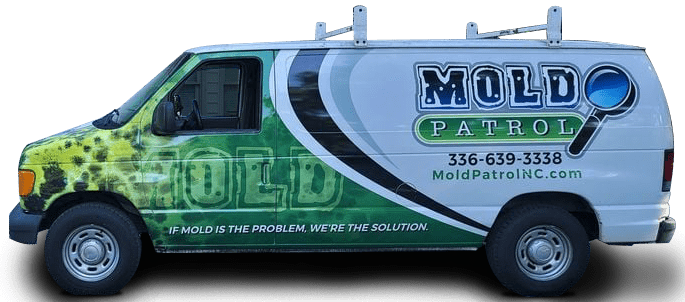The Basics of Mold Allergies
The primary symptoms associated with the symptoms of mold allergy can vary from the individual to the other, and they are sometimes difficult to distinguish from those of respiratory illnesses, and the common cold. This is why it is crucial to know how mold allergies work. Check out this article to learn more about the signs of allergies to mold.
The spores of mold can be an environmental allergen
Mold spores can trigger allergic reactions and can even cause asthma attacks. They can interact with other environmental pollutants and volatile chemicals that are in the air, causing the symptoms. People with mold allergies should seek medical treatment immediately if they experience symptoms that are worsening.
Although everyone is susceptible of a reaction to mold that is allergic Some people might be more sensitive in comparison to others. Some people are prone to a compromised immune system or have a history of allergies or chronic obstructive pulmonary disease, or live in a humid area.
Apart from a skin test, doctors can also perform blood tests to determine if someone is allergic to particular types of mold. These results can be used to make an informed decision about the cost and difficulty of remediation of the indoor surroundings. Medical professionals will also consider the health history of a patient as well as the type of job environment they are working in, their hobbies or other actions that expose the patient to mold, and various other aspects.
Molds are microscopic organisms that develop both indoors and outside. They thrive in moist warm, humid conditions and are able to spread through the air. While some individuals may be sensitive to a specific species of mold, others may be allergic to all kinds of mold. The severity of the mold allergy may range from mild to severe.
When there's no adequate sanitation, mold spores may cause respiratory issues and skin rashes. They are also an important contaminants in food items. Allergic people should stay away from contact with these molds.
They can lead to lung infections.
If you reside in an area with a large amount of exposure to mold, you might be at risk of developing lung infections or mold allergies. The presence of mold allergies can cause lung inflammation, which can disrupt the normal functioning of the lung. This means that you might experience respiratory symptoms such as breathing problems, shortness of breath, and wheezing. Some people may even develop asthma. If you are experiencing or experience any of these symptoms, you should consult a doctor immediately.
If you think you might be suffering from an allergy to mold, you should see your doctor for a full diagnosis. Your doctor will take a look at the medical records of your patients and inquire about the symptoms you are experiencing. In the event that your immunity is weak or you suffer from other respiratory ailments the doctor could suspect that you have ABPA. The doctor could also take a sample of lung tissue or fluid to be tested. Additionally, your doctor may also conduct a blood test to look to detect fungal spores.
People with mold allergies can be afflicted by a range of respiratory issues, including the respiratory symptoms of asthma as well as pneumonia. While some people will react immediately to mold spores, others will take a couple of days to fully develop an allergic reaction. In some cases exposure to mold can cause allergic asthma. This happens when your immune system is overreacting to the spores.
Symptoms of mold exposure are like those that are associated with a cold, flu as well as asthma and pneumonia however a medical professional can differentiate between the two. The first step in treating mold allergies is to decrease the amount of exposure you have to the substance. In addition, if you suspect that you suffer from an allergy to mold, your doctor may suggest treatments that help reduce any exposure you have to this allergen.
They can cause asthma
For those with a history of asthmatics can be triggered by mold allergies. attacks. The fungi that cause asthma are widespread indoors that thrive in dark, moist environments. Not all molds can cause allergic reactions, but. people who spend a large amount of time in living in an environment that has a high amount of mold may be at higher chance of developing allergic reactions.
Individuals with mold allergies suffer lower lung function, higher hospitalizations, and more asthma-related illnesses than people with allergy to other molds. The immune system interprets mold spores as an imminent threat, and it reacts through a rise in mucus production as well as susceptibility to allergens. The result is that symptoms can include tight chest, breathlessness, and wheezing.
A blood test can determine whether or not you're an allergic mold. To test for mold allergies the doctor will take blood samples and make an allergy-specific IgE antibody test. Results of the tests will help determine best treatment. Depending on the severity of your illness and nature of the mold, your doctor might recommend a medication to help you alleviate your symptoms.
To reduce the risk of mold-induced asthma, you should try to minimize the amount of humidity that is present in your house. Ideally, the humidity level should be 50 percent or less. A proper ventilation system is also essential. If your home is humid the use of a dehumidifier or an exhaust fan can aid in reducing the humidity levels. It's also crucial to keep bathrooms clean and dry. Also wearing a protective mask is recommended whenever you're outdoors.
Although symptoms of mold allergy can vary from person to person, the symptoms are generally like those associated with allergies like hay fever. They can include stuffy nose or coughing. They can also be sniffing. Anyone suffering from an allergy to mold may have these symptoms in a single instance or over a long period of time. If you experience this type of symptom throughout the year it's crucial to consult the doctor to ensure you're not suffering from more serious disease.
They can trigger anaphylaxis.
Anaphylaxis can be a severe medical health condition. It can occur if you're allergic to mold or other allergens. You may be able to be able to notice symptoms as soon as you feel them or it could take a few days before it becomes apparent. If the symptoms persist for longer than a couple of days then you must see a physician. Your doctor will conduct a variety of tests to confirm your allergy. Skin prick tests or IgE test, to determine the presence of specific allergens that are present in your blood. These tests also assist to distinguish an allergic reaction from an infection.
Anaphylaxis is triggered by the immune system's overactive response to mold spores. Your body responds by releasing histamine that causes irritation, such as watery eyes, and itching. Certain people are more sensitive to mold , and be afflicted with symptoms the moment they come in contact with it. Anaphylaxis is an extremely dangerous allergic reaction that must be treated immediately.
If you think you are sensitive to the mold, be sure to wear a protective gear during cleaning. Wear goggles, gloves, and a mask to avoid allergic reactions. If you are experiencing serious symptoms consult a physician or asthma nurse to seek help. Antihistamines prescribed by your doctor can aid. If you notice your symptoms getting worse it is recommended to get an allergy vaccination.
Anaphylaxis is a life-threatening allergic reaction that can affect the whole body. It can strike after exposure to an allergen, for example, a sting from a bee. When the reaction is severe, your airway may become blocked. There may be the sound of your breathing becoming louder or more raucous.
People who are sensitive to mold can experience different symptoms based upon the degree and severity of their allergy. The mild symptoms could include a runny nasal passages and congestion. But if you're subjected to a lot of mold, the symptoms could become more severe. Some people may even develop pneumonia.
They can be treated with immunotherapy
It is a good thing that immunotherapy can be a great way to treat mold allergies. Allergists use test that has been proven clinically valid to determine the specific mold allergen responsible for your symptoms. These tests measure the level of IgE antibodies that are specific for an allergen. By focusing on these antibodies doctors can create a successful treatment strategy.
While mold allergies affect almost all people, those with weak immune systems are at a higher likelihood of developing them. They might have a history of respiratory conditions such as asthma or chronically obstructive pulmonary disease. In addition, they might be in an area that is humid and work in an area that has a lot of humidity, or even be exposed to mold on an everyday day basis.
The efficacy of this treatment is dependent on many elements. The first step is to ensure that patients are properly informed and aware of the severity of their condition. Patients should be informed that the condition could last for a long time, and that they must work together with their doctor to discover how to handle the symptoms. Additionally, it is crucial to know that patient's co-operation is vital to the successful treatment. In this regard, it is suggested to provide patients with informational books and pamphlets regarding mold allergies.
The main goal of immunotherapy is to induce an immune response to an allergen. This is accomplished by injections with the allergen. The allergist begins with a very low dose and gradually increases the dose until the patient develops resistance against the allergy. This process is called the building-up phase. In the build-up phase the allergen is slowly introduced into the body. it is believed that this will strengthen the immune system to desensitize them to the allergy. After that, the patient will begin the maintenance phase. It is generally two to one week between treatments.
Allergy immunotherapy is best performed by doctors who are trained. But, it's important to ensure that you choose an allergist who is reliable. Moreover, your doctor should be able identify the allergens that are causing your symptoms. An accurate allergy test is important to determine which allergens are the best candidate for treatment with immunotherapy.
|
Phone +13366393338
|
|
| Address: 4175 Burch Bridge Rd, Burlington, NC 27217, United States |
| https://agentia.com.mx/bathroom-mold-removal/ |
| https://shoppingportals.us/mold-damage-removal-mold-patrol/ |
| https://geneseegrande.com/mold-patrol-mold-inspection-and-removal/ |

